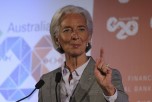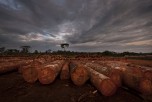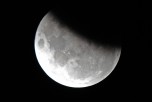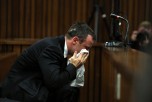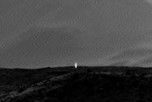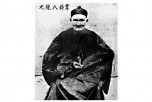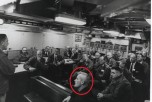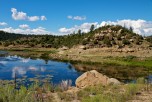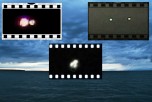Scientists With Controversial Views Speak of Blacklisting: How Free Is Science?
'Emotional reaction' from peers when a scientist breaks from conventional thinking
1. Richard von Sternberg
Richard von Sternberg was an editor at the peer-reviewed journal Proceedings of the Biological Society of Washington. He published an article written by Stephen C. Meyer, which had been reviewed by three other scientists. The article mentioned intelligent design might be possible, Von Sternberg explained in the documentary “Expelled: No Intelligence Allowed.”
He said he was fired when his superiors “had a physical, emotional reaction.”
Meyer said: “I was viewed as an intellectual terrorist.”
2. Bill Donato, Archaeologist
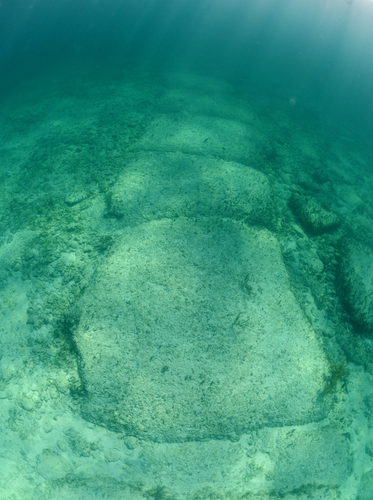
Image of Bimini Wall via Shutterstock
Donato has been working for many years to prove that Bimini Wall, a structure off the coast of the Bahamas, was built by a prehistoric civilization, one that far out-dates any civilization thought capable of building the structure.
“I do not fear any professional repercussions, because I know what I’m talking about and they [skeptics] have typically done no investigations of any kind,” Donato wrote in an email to Epoch Times. He said his funding comes from like-minded people and he is confident in his findings, confident that truth will prevail.
“Though reductionism is useful, it also has decided limitations; you can’t build an automobile engine from only understanding a bolt,” he said.
Dr. Greg Little, a psychologist who has taken a keen interest in Bimini and has worked closely with Donato, wrote in a 2005 paper: “I have no expectation that any of the skeptics will actually change their views or even consider any alternatives to their beliefs. … All contradictions to their beliefs are probably perceived as a direct threat to them professionally and psychologically.”
“Skeptics invoke emotion-laden, ridiculing terms,” Little wrote. “For obvious reasons, mainstream archaeologists have avoided Bimini as if it was infected with a deadly virus. They have been convinced by reading others’ summaries of the early research—not by digesting the actual facts—that Bimini has to be nothing but natural beachrock and that a harbor cannot be there—therefore it is not there.”
3. Caroline Crocker, George Mason University
Crocker mentioned intelligent design in a couple of slides while lecturing at the university, she said in “Expelled: No Intelligence Allowed.” She said she was nonetheless disciplined for teaching creationism and fired at the end of the semester. She said she was essentially blacklisted in the academic community for what she called her “science sin.”
4. Michael Egnor, Stony Brook University
Egnor is a neuroscientist at Stony Brook University who completed his medical degree at Columbia University.
He expected criticism for his support of intelligent design theories, but “what has amazed me is the viciousness and the sort of baseness of it,” he said in the documentary. He has, however, retained his position at the university.
Prof. Robert J. Marks II at Baylor University had tenure before expressing a belief in intelligent design. He said “I’m academically safe, but the young people, what has happened to them right now in America because of this scientific gulag is really terrible.”
5. Klaus Dona, Researcher, Exhibit Curator
Klaus Dona says advanced civilizations existed 100 million years ago. Conventional science holds that civilization only emerged some 6,000 or 7,000 years ago.
Dona has traveled the world to research artifacts that don’t seem to have any proper place in history. He toured with a collection of such artifacts to draw attention to what he says are pieces of evidence that our current understanding of history may be incorrect—pieces usually stuffed away in museum basements.
In an interview with Russell Scott on “West Coast Truth,” Dona spoke about his findings and also about researchers who have held similar views and have been penalized.
“They face real problems in their universities or in their communities.” He gave the example of William Brown, a theoretical biophysicist whose DNA research related to the human consciousness got him fired from his university position. He now works for the Resonance Project Foundation and Hawai’i Institute for Unified Physics.
“Scientists are scared to lose their jobs or … [have] problems if they give out some very, very unbelievable—but real—facts,” he said. “It’s not easy for a scientist to deal with these unbelievable things.”
6. Astronomer Guillermo Gonzalez, Iowa State University
When you say “intelligent design” in a room of academics “them is fighting words,” Gonzalez said in “Expelled: No Intelligence Allowed.”
“People really get emotional about this.”
He feels certain that if he hadn’t spoken of intelligent design, he would have tenure. He says of scientists who hold controversial views: “If they value their careers, they should keep quiet.”
See Epoch Times article “10 Scientific Blunders That Could Shake Your Faith in Science” to read about scientists in history who have been shunned, but whose theories were later vindicated.
*Image of a scientist via Shutterstock

